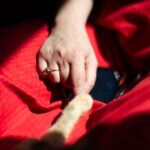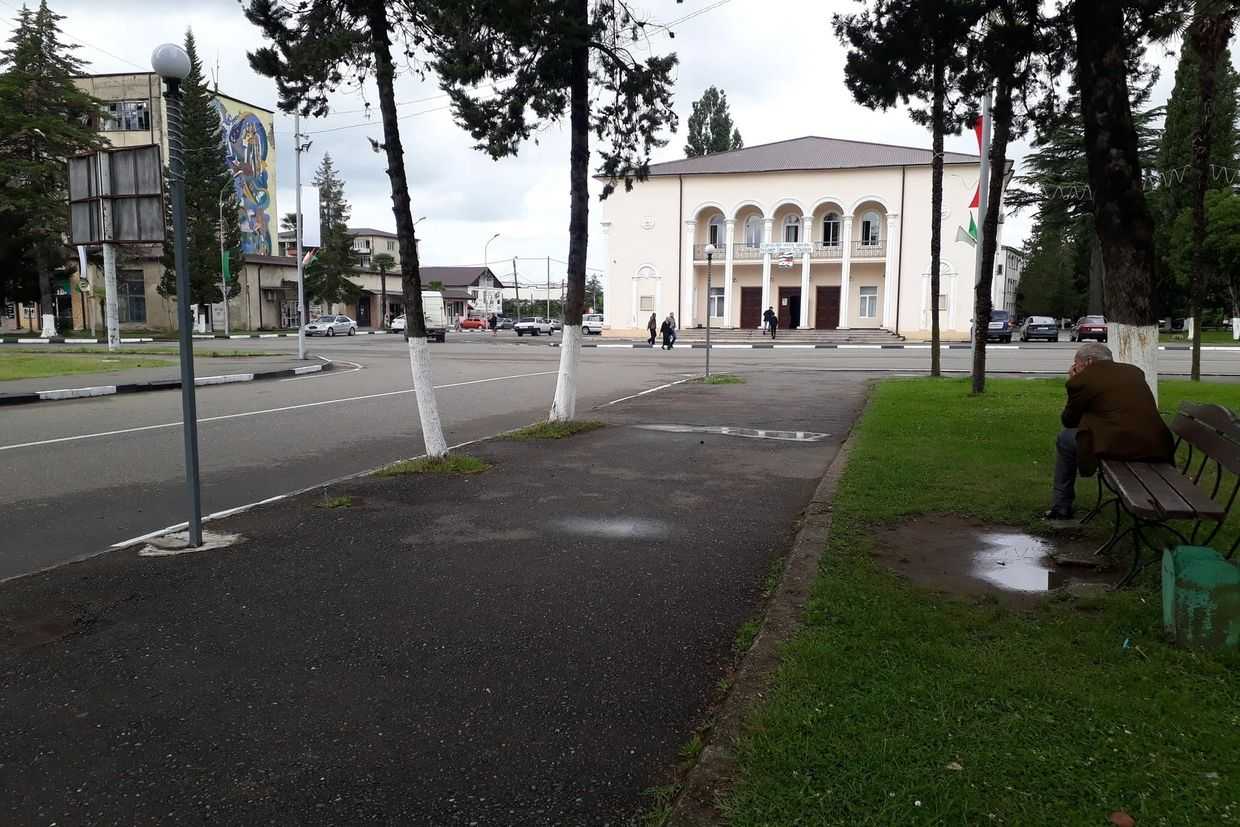
Left paralysed after an ambulance crash, paramedic Inga Dundua has been forced to fight the Emergency Services at every step of her rehabilitation.
On the night of 9 June 2019, an ambulance was called to an address outside of their service area — something that happens quite frequently in Georgia. It had been raining for some time and the roads were slippery. The ambulance was called to Nadzaladevi District, a notoriously hilly area of Tbilisi.
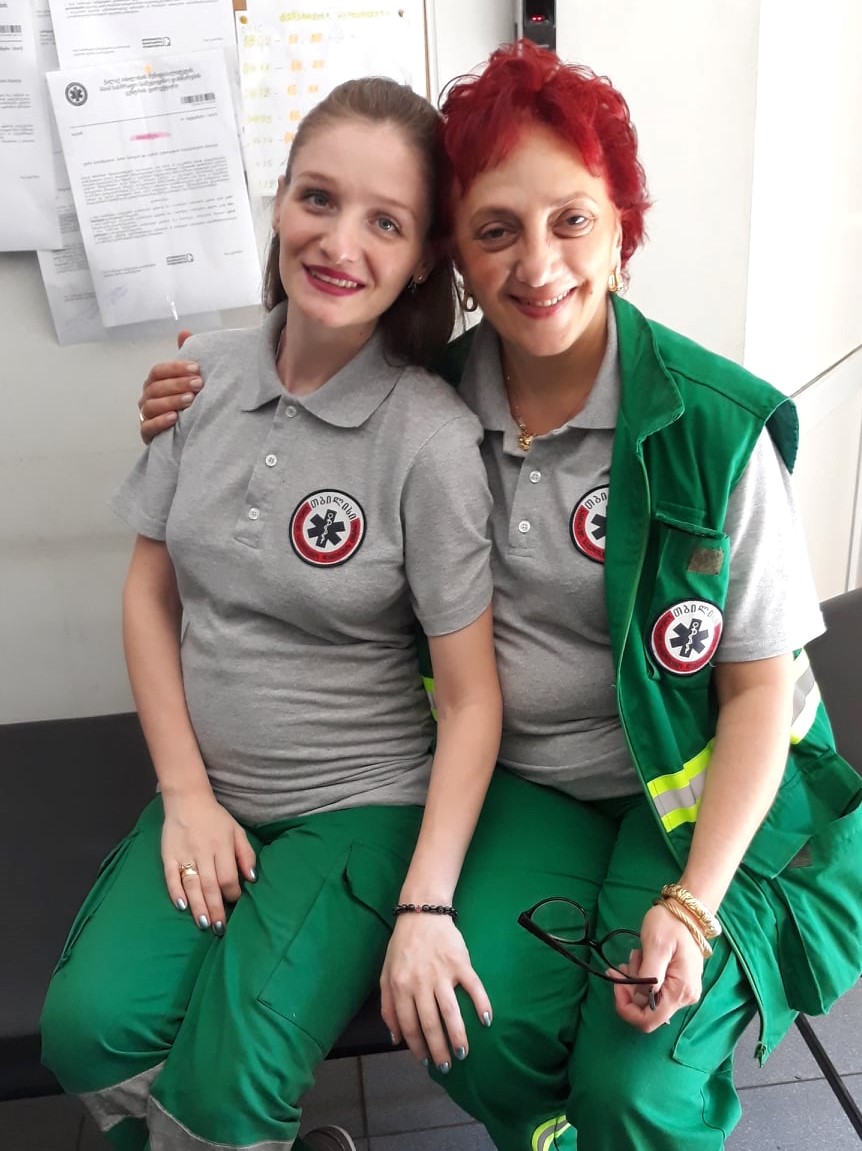
Senior paramedic Inga Dundua and her assistant, Nino Tabatadze, spent around 40 minutes with the patient. They got back into the ambulance and woke up the driver, Valeri Klarjeishvili, who was sleeping. The paramedics still hadn’t fastened their seatbelts when the driver took off the handbrake and the ambulance began to roll down the hill.
Later, witnesses would recall how the ambulance passed them by. They noted that the engine shut off halfway down the hill, after which it picked up speed.
The crash was fast and heavy. The driver, Valeri Klarjeishvili, broke his leg. Junior paramedic Nino Tabatadze, who was pregnant at the time, suffered a miscarriage. Inga Dundua flew through the windscreen headfirst suffering the most serious injuries of all.
Inga barely remembers the following days. She had a deep head wound, a part of her facial muscles were completely missing, glass had cut her eyelid, and her heart and lungs were severely damaged. After undergoing surgery, she was kept on life support for days. Above all, Inga broke two of her vertebrae, leaving her paralysed. She left the hospital over a month later in a wheelchair.
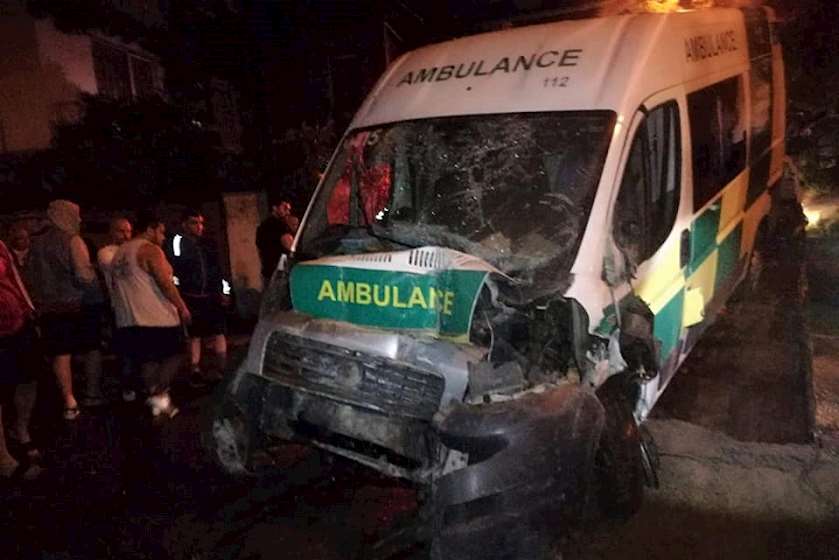
Doctor’s saved Inga Dundua’s life, but her entire existence and the lives of her family have been turned upside down since the crash. So how did the Emergency Services repay their employee of 25 years who was injured on duty?
A fight for rehabilitation costs
Inga Dundua’s surgery and hospital fees — around ₾36,000 ($11,000) — were fully covered by Tbilisi City Hall, to which the Emergency Services belonged at the time. However, these were only the immediate costs as Inga was only beginning her journey to rehabilitation.
Doctors told her she may still walk again, and even be able to work to an extent, if she received a stem cell transplant and completed a full, high-quality rehabilitation programme. Inga’s doctor, Vaja Lejava, from the New Medical company specifically stated that her rehabilitation should be completed abroad.
Her best hope, according to her doctor, would have been to implant a neurostimulator and to undergo a programme of physiotherapy and massages. The clinic that Inga’s family selected was rejected by the Ministry of Health as too expensive.
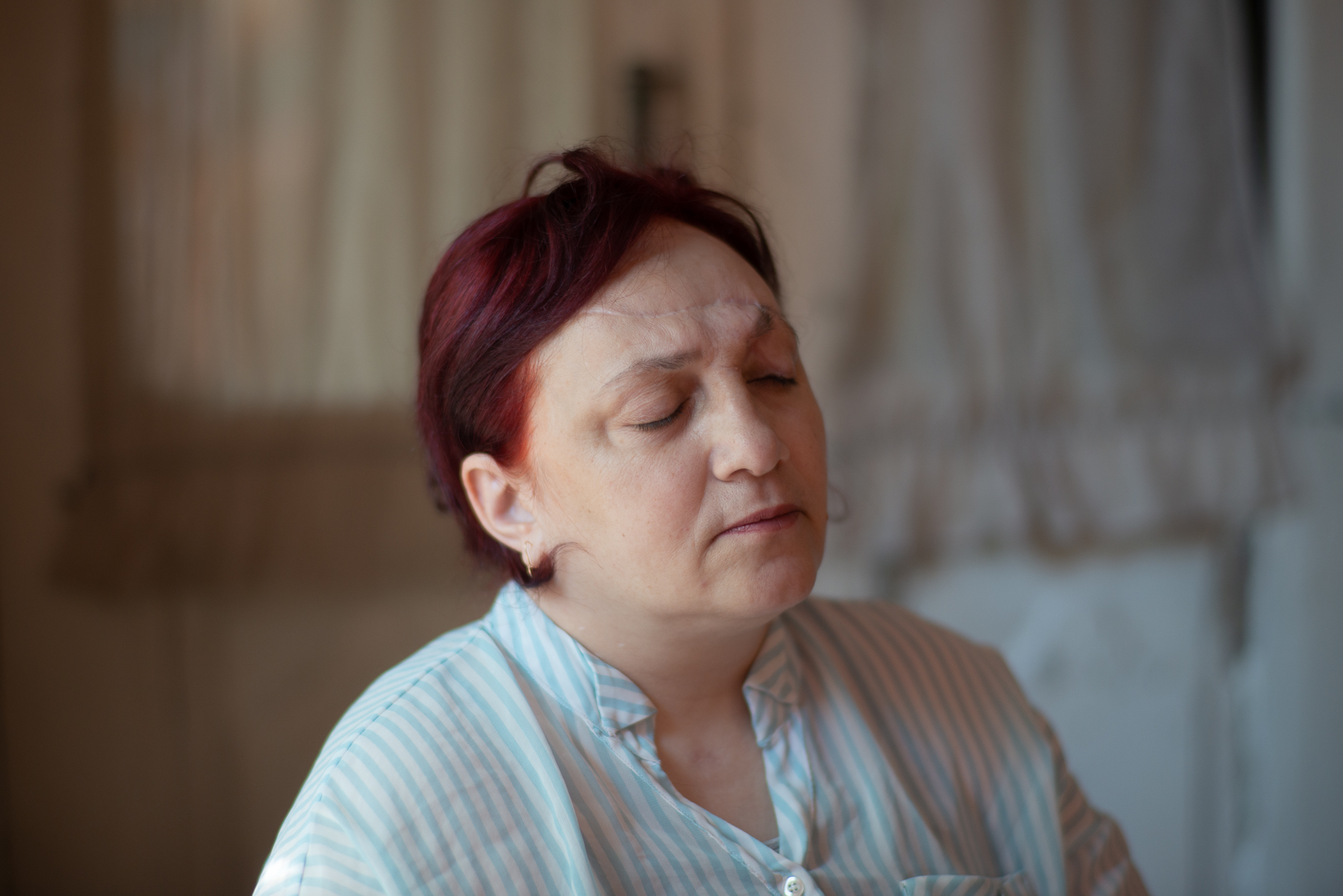
Instead of a programme that could allow her to walk again, Inga had to settle for a 75-day course in a German clinic focusing on helping her adapt to life as a paraplegic.
Naturally, Inga needed to be accompanied to Germany, which was mentioned in the doctor’s recommendation. But there were no finances for her daughter, Mariam, to come along. When the family reached out to the Emergency Services for the funds, they collected money from their staff.
‘For us it was a tragedy’, recalls Inga’s colleague, Davit Vardiashvili. ‘Of course, we wanted to contribute.’
Inga was also expecting a New Year’s bonus, but this never materialised. Upon calling the Emergency Service’s accountant, Inga was informed that the money that other staff members had collected counted as her bonus.
After cuts were made to the hours of the second phase of the rehabilitation programme, Inga and her family came to the conclusion that the remaining €5,000 ($5,900) of the €26,000 ($30,000) obtained from the City Hall and Ministry of Health would be of better spent in a rehab clinic in Georgia.
Maka Gvaramia, then-director of the Emergency Services, agreed to this suggestion. She also had the verbal agreement of Gela Chiviashvili, head of the municipal department of healthcare and social services at Tbilisi Municipality.
Inga applied to the ministry in January but received a cheque for only ₾5,000. Thinking it was a bureaucratic mistake, Inga applied again, but no answer came.
Calls by Inga’s family were ignored until they tried to reach out to Emergency Services’ management through a family friend. The next day, the full payment finally came through. It was already July 2020 — the whole process took about half a year.
Inga also discovered that this money, the remaining money from the initial 2019 rehabilitation costs, was accounted for in the year 2020, which meant that she could no longer apply for further rehabilitation this year.
A family tragedy
The life of Dundua’s family has changed drastically since the accident. Inga’s friends frequently visit her and support her financially, but she wishes to one day welcome them in a different situation.
‘Maybe I’ll get up one day’, Inga says. ‘Our family is pitiful for everyone now and we don’t want this attitude anymore. Besides the physical injury, all of us suffered immense psychological trauma that is still ongoing. It’s unbearable to be so helpless. Someone always has to stay at home with me’.
Despite Inga now being able to sit in her wheelchair and perform basic operations with her hands, her condition remains serious. She can spend around 8–9 hours sat down but requires constant attention to help her in and out of her wheelchair, to turn over in bed, and to help her wash and go to the toilet.
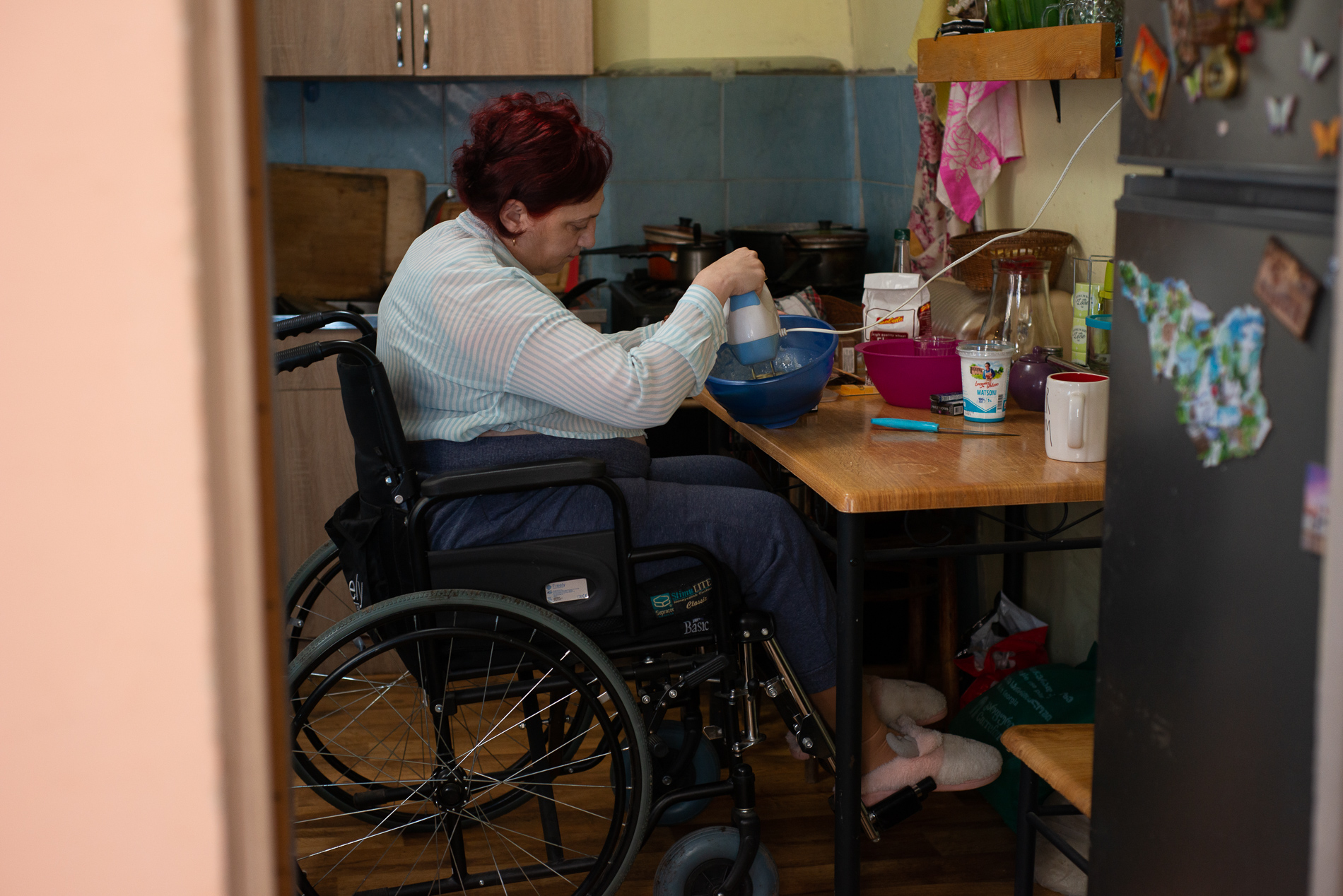
As the family cannot afford to hire a caregiver, her daughter Mariam and son Giga gave up their jobs to look after her.
Inga’s husband makes a living selling rare collectables, so his income is not consistent.
‘Our greatest wish is to go back to the rhythm we had before’, Mariam says. ‘We want Inga’s needs to be met. We have lost the income of three family members — if this [accident] didn’t happen, she would have been able to work at least until the retirement age, if not longer’, says Mariam.
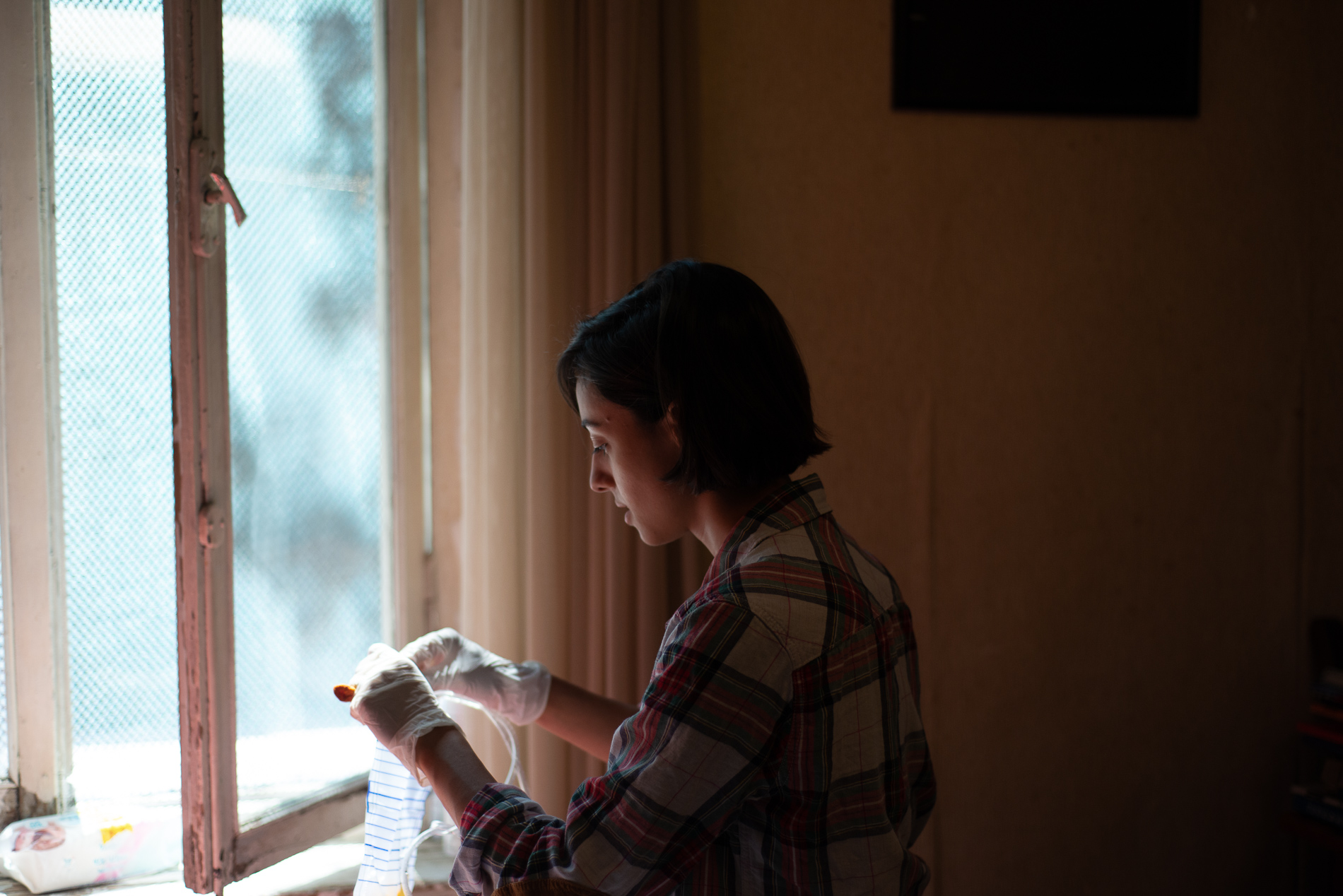
Tamar Tskitishvili, a rehabilitation therapist at the New Hospitals Clinic, where Inga has been treated, confirmed to OC Media that she needed rehabilitation at least once a year, as well as extensive care at home, including massages. ‘If the patient stays active, her psychological state will also improve’, she says.
After letting go of her massage therapist, whose services were also beyond their financial reach, Inga has begun to experience increased muscle tension resulting in strong spasms.
‘Sometimes the pain in my chest is so strong that even the air from my nose hurts when I exhale. When I lie down, my legs can suddenly go up in a spasm, and if no one folds them back I’m unable to breathe, I choke’, Inga says.
To save money on painkillers, Inga only takes half of the recommended dose. In total, Inga takes 42 different medicines costing about ₾2,360 ($730) per month. She would also need a home rehabilitation therapist and a caregiver if her family members want to be able to work.
Wrapped up in bureaucracy
In September 2019, Inga’s friends created a support page where people could donate money to her. Three days later, the Emergency Services director Maka Gvaramia and her deputy, Solomon Rostomashvili, finally came to visit her. They asked Inga to shut down the Facebook page.
‘They literally said it damages their image’, Inga recalls. Instead, they suggested creating a new page for the Emergency Services which would include two administrators — one from Emergency Service’s PR office and Giga, Inga’s son.
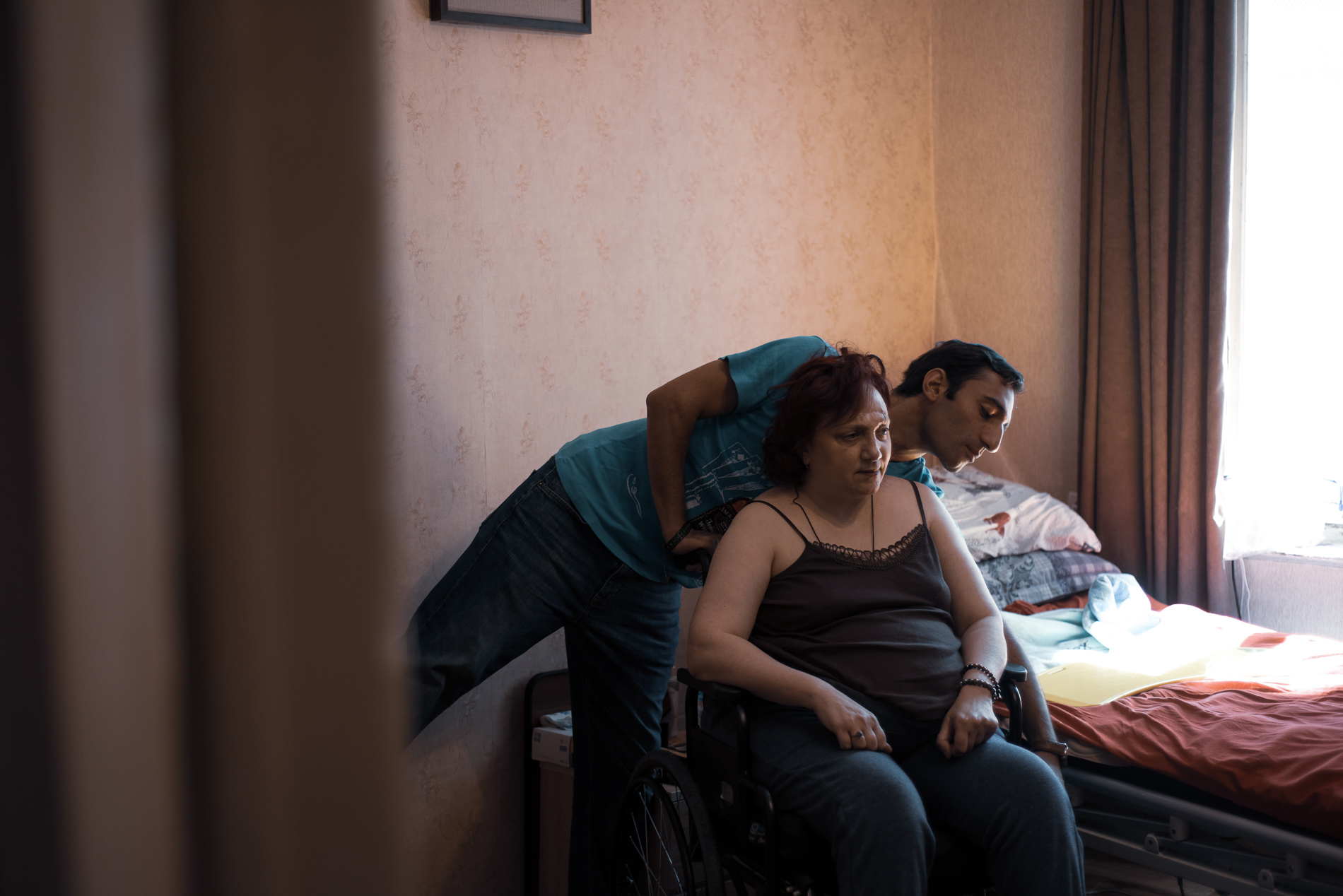
The page was created, but the posts changed; along with Inga’s hardships, there were now posts praising the Emergency Services. The donations dried up, and soon the Emergency Services PR office closed the page down.
In May, Amiran Gogitidze, the new director of the Emergency Service, called Inga’s children to his office to ask if they were going to appeal to the court.
‘We said we weren’t. The only thing we wanted was their support’, Mariam says.
Gogitidze wrote down all of Inga’s needs and promised that the Emergency Services would create a fund in Inga’s name. When the promised fund didn’t materialise after two months, and all their calls were ignored, Mariam and Giga ambushed Gogitidze in his office.
They say he told them that the fund would be a general one, for all the staff who needed support. He also reportedly said that Inga would not have a guaranteed monthly income to cover her medical expenses.
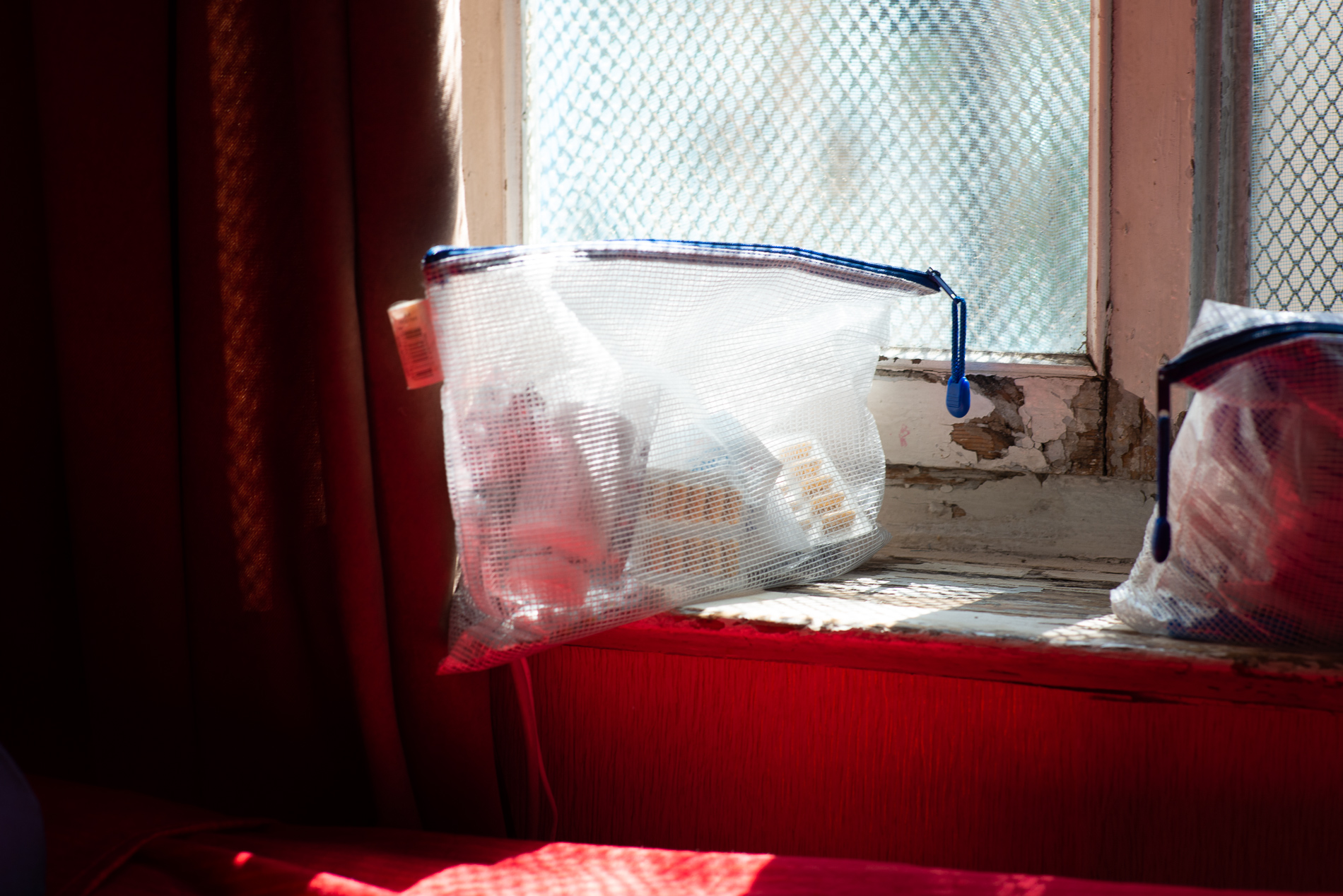
‘Every time they let us walk away with the false hopes’, says Inga.
The Emergency Services press office told OC Media that ‘The Emergency Service assumes all responsibility for their employee and has further plans for her rehabilitation.’
‘As far as we know, all of the needs of Mrs Dundua are met by the relevant agencies’, spokesperson Tamar Sarishvili said.
‘The Emergency Services will be maximally mobilised to help Mrs Dundua with her medications’, she added.
The Employees Help Fund has still not been created, and the Emergency Services could not say when this would happen.
‘There’s no such thing as a workplace accident’
‘There’s no such thing as a workplace accident.’ Those were the words that the deputy director of the Emergency Services, Solomon Rostomashvili, according to Mariam Katcharava, Inga’s daughter, when she tried to negotiate with him on the wheelchair that would take Inga home.
‘He said everything they did was a gesture of goodwill, not an obligation.’
Georgian legislation indeed doesn’t feature a separate notion of workplace accidents.
‘Workplace accidents are a part of the very broad subject of workplace safety’, says Lela Gvishiani, a lawyer from local rights group the Human Rights Education and Monitoring Centre (EMC).
In July, Inga, with the help of EMC, decided to sue the emergency services requesting compensation.
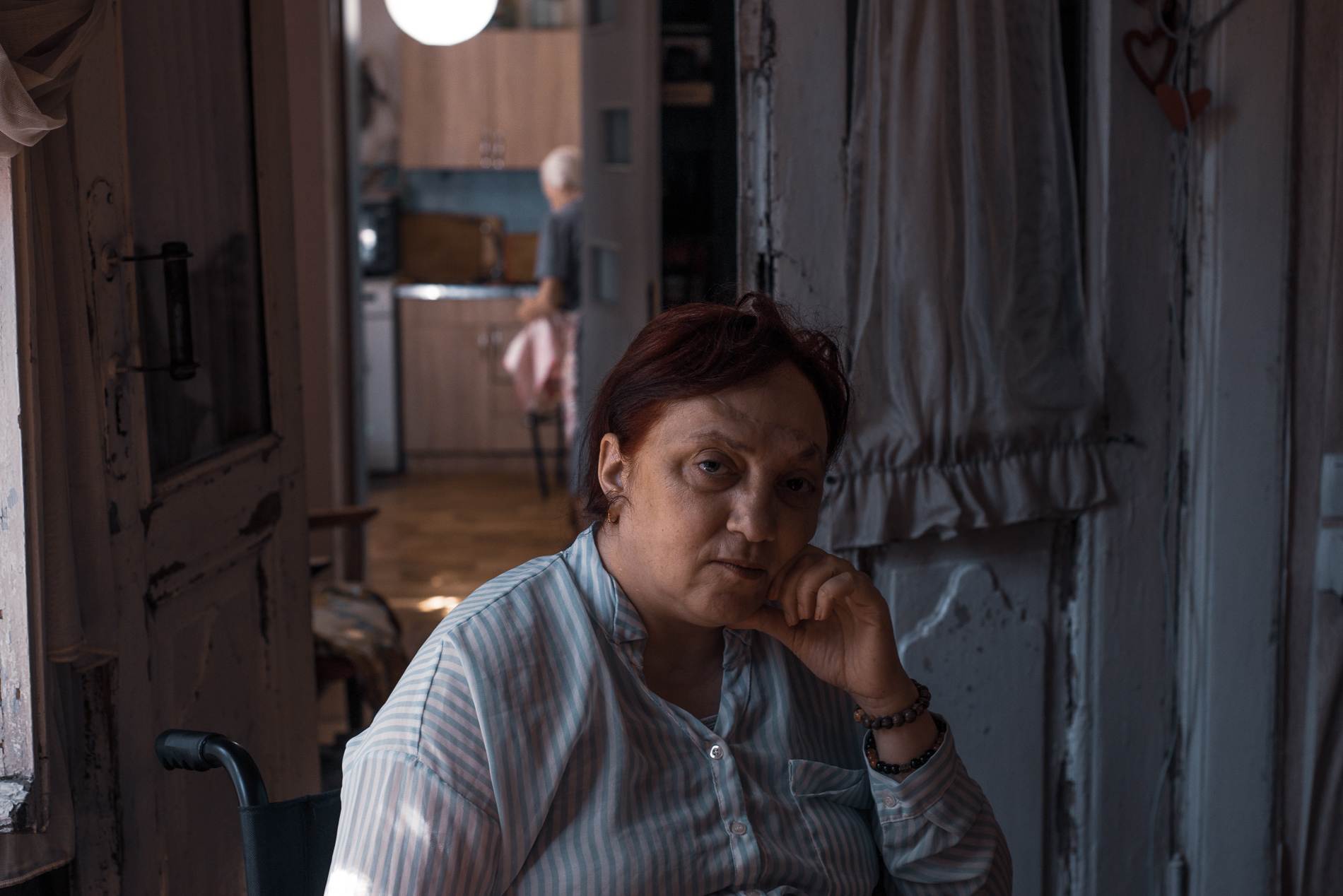
‘This case is not so much about workplace safety — since the examination confirmed the ambulance was operational — as much as it is about compensation for losses’, says Gvishiani, who will be representing Inga in court.
They will be requesting monthly compensation payments as well as the costs necessary to restore Inga’s health.
‘Workplace safety, as such, is a narrow concept in Georgia; it means only the safety of the work process. Our labour code doesn’t offer an effective mechanism for compensating losses — the victims of accidents, or their families in cases of death, are left with only two options — proceed to court under the general legislation or accept a private agreement with the company.’
The Public Defender has also criticised the lack of a mechanism for compensating losses.
‘When cases like this happen, how soon justice arrives is crucial. Employers are aware that it takes three years for the plaintiffs to summon the resources to make a case, and they also know the plaintiff need money soon’, Gvishiani says.
This problem can be observed in nearly all work-related accidents. OC Media has previously looked at the same issue on the construction sites.
A criminal case was opened right after the accident, but Inga was never questioned. OC Media inquired with the Samkharauli National Forensics bureau for information about the ambulance, which expertise found to be in working order.
The investigator, Kakha Kikishvili, told the family that the investigation found that the driver, Valeri Klarjeishvili, was responsible for the accident.
Klarjeishvili declined to comment to OC Media, however, his colleague Jimi Amiranashvili, who had been driving the same ambulance on another shift, described him to OC Media as a high-level professional.
‘I have learned a lot from Valeri’, he says. ‘I never recall him making a mistake, for years. It was just a human moment.’
Another ambulance driver, Gia Managadze, told OC Media that he was advised not to talk about the accident by the management.
Both drivers describe the work as strenuous. Drivers receive ₾106–₾108 ($33) per shift, usually working eight 24-hour shifts per month and earning around ₾850 ($265).
Given the low pay, some drivers also work as taxi drivers in their off-hours.
Although the responsibility for Inga’s accident may rest with both the driver and their employer, the Emergency Services, EMC will first be addressing the employer. The employer could then ask for the compensation from the driver, but EMC is confident that the Emergency Services will have to pay in the end.
OC Media cross-consulted the case with the Union of Medical Workers. Lawyer Miranda Mandaria confirmed that ‘a lot depends on the investigation, we can still confirm the employer won’t be able to dodge responsibility completely.’
For her part, Inga is still shocked by her former employer’s indifference to her plight.
‘When I left the hospital, none of my bosses came to see me [until the incident with the Facebook page]. I was waiting for them every day. I couldn’t believe that after 25 years of work they weren’t interested in my well-being. It was an accident on duty, after all. That’s what the papers said when I was brought in.’
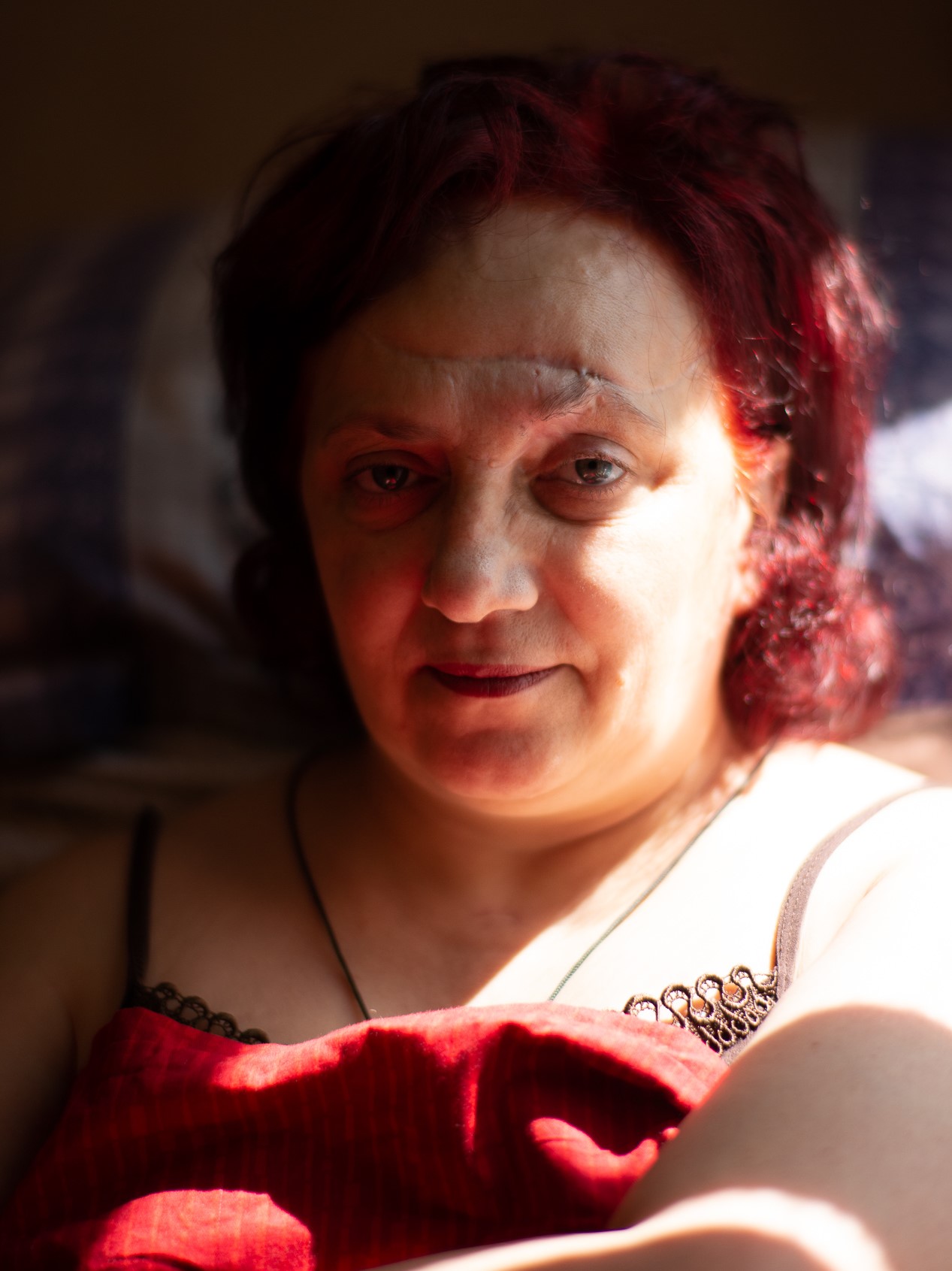
This article was prepared with support from the Friedrich-Ebert-Stiftung (FES) Regional Office in the South Caucasus. All opinions expressed are the author’s alone, and do not necessarily reflect the views of FES.

